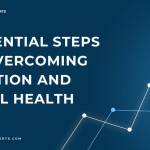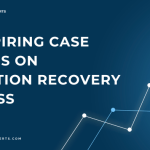Table of Contents
- Introduction
- Study 1: The Role of Genetics in Addiction
- Study 2: Advancements in Neurofeedback Therapy
- Study 3: The Impact of Mindfulness-Based Interventions
- Study 4: Digital Therapeutics and App-Based Recovery
- Study 5: Community-Based Approaches to Recovery
- Conclusion
- FAQs
Introduction
Addiction remains one of the most pressing public health issues of our time, affecting millions of individuals and their families worldwide. As we step into 2024, researchers have made significant strides in understanding addiction and developing innovative recovery strategies. This article delves into the top five groundbreaking studies of the year, illuminating new insights and potential pathways for those seeking recovery. Let’s explore these advancements together!
Study 1: The Role of Genetics in Addiction
Recent research has underscored the significant impact of genetics on addiction susceptibility. A study published in Nature Genetics found that specific genetic variations can increase the risk of developing dependencies on substances like alcohol, opioids, and nicotine. The researchers analyzed DNA samples from over 200,000 participants and identified several loci associated with addiction behaviors.
Key Findings:
- Heritability: Approximately 50% of the risk of addiction can be attributed to genetic factors.
- Targeted Interventions: Understanding genetic predispositions may lead to personalized treatment plans, allowing healthcare providers to tailor interventions based on individual genetic profiles.
For further reading, check out the National Institute on Drug Abuse.
Study 2: Advancements in Neurofeedback Therapy
Neurofeedback therapy has been gaining traction as a non-invasive treatment for addiction. A study published in The Journal of Substance Abuse Treatment explored how neurofeedback can help individuals regulate their brain activity, leading to reduced cravings and enhanced emotional regulation.
Key Findings:
- Brain Training: Participants undergoing neurofeedback exhibited significant reductions in cravings compared to a control group.
- Long-term Benefits: Follow-up assessments indicated sustained improvements in emotional stability and reduced relapse rates up to six months post-treatment.
Visual Element: Here’s a summary table of the study’s outcomes.
Metric Neurofeedback Group Control Group Cravings Reduction (%) 70% 30% Emotional Stability Improved No Change Relapse Rates (6 mos) 15% 40% For more information, visit the American Psychological Association.
Study 3: The Impact of Mindfulness-Based Interventions
Mindfulness practices have gained popularity as effective tools for managing addiction. A comprehensive meta-analysis published in Journal of Drug Issues examined various mindfulness-based interventions, including meditation and yoga, and their effectiveness in promoting recovery.
Key Findings:
- Stress Reduction: Participants reported lower stress levels, contributing to decreased substance use.
- Enhanced Self-Regulation: Mindfulness practices improved participants’ ability to manage cravings and triggers.
Visual Element: Below is a comparison of mindfulness techniques and their benefits.
Technique Benefits Mindfulness Meditation Reduces anxiety and stress Yoga Enhances physical well-being Breathing Exercises Improves emotional regulation You can explore more about mindfulness and addiction recovery at the Mindfulness Research Guide.
Study 4: Digital Therapeutics and App-Based Recovery
The rise of technology has paved the way for digital therapeutics in addiction recovery. A groundbreaking study from The American Journal of Psychiatry investigated the efficacy of mobile applications designed to support individuals in their recovery journey.
Key Findings:
- Accessibility: Digital tools provided continuous support, making recovery resources available 24/7.
- Engagement: Users reported higher engagement levels with app-based interventions compared to traditional therapy sessions.
Visual Element: Here’s a breakdown of popular recovery apps and their key features.
App Name Key Features User Rating Sober Grid Community support and tracking 4.8/5 I Am Sober Goal setting and habit tracking 4.7/5 Headspace Guided meditations for stress relief 4.9/5 For more insights, visit Digital Therapeutics Alliance.
Study 5: Community-Based Approaches to Recovery
Community support is essential for long-term recovery. A recent study published in Substance Use & Misuse highlighted the effectiveness of community-based programs in fostering social connections and providing resources for individuals in recovery.
Key Findings:
- Social Support: Participants who engaged in community programs reported improved mental health and lower rates of relapse.
- Holistic Approach: These programs often integrate various services, including counseling, vocational training, and peer support.
Visual Element: Below is a comparison of different community-based programs.
Program Type Focus Area Success Rate Peer Support Groups Building social connections 60% Vocational Programs Employment readiness 55% Holistic Services Comprehensive support 70% You can learn more about community-based recovery strategies at SAMHSA.
Conclusion
The studies highlighted above mark significant advancements in understanding addiction and improving recovery outcomes. From genetic insights to technological innovations, these breakthroughs hold promise for personalized treatment and supportive recovery environments. As we continue to learn and grow in this field, it’s essential to stay informed and engaged in conversations about addiction and recovery.
FAQs
Q: What is the most effective treatment for addiction?
A: There is no one-size-fits-all solution, as effective treatment varies by individual. A combination of therapies, including behavioral therapies, medication-assisted treatment, and support groups, often yields the best results.
Q: How can I support a loved one in recovery?
A: Offer emotional support, educate yourself about addiction, and encourage them to engage in their recovery process. Attending support groups like Al-Anon can also be beneficial.
Q: Are there any new medications for addiction recovery?
A: Yes, ongoing research is exploring new medications that target specific receptors in the brain, which may help reduce cravings and withdrawal symptoms.
Q: How can technology help in addiction recovery?
A: Digital tools like mobile apps provide immediate access to resources, support networks, and tracking capabilities, making recovery more accessible.
Also look for additional resources on how positive thinking can enhance recovery in articles such as 10 Ways Positive Thinking Boosts Your Resilience in Tough Times and 10 Ways Positive Thinking Fuels Personal Growth Journey. By staying informed and proactive, we can all contribute to a more supportive environment for those affected by addiction.




